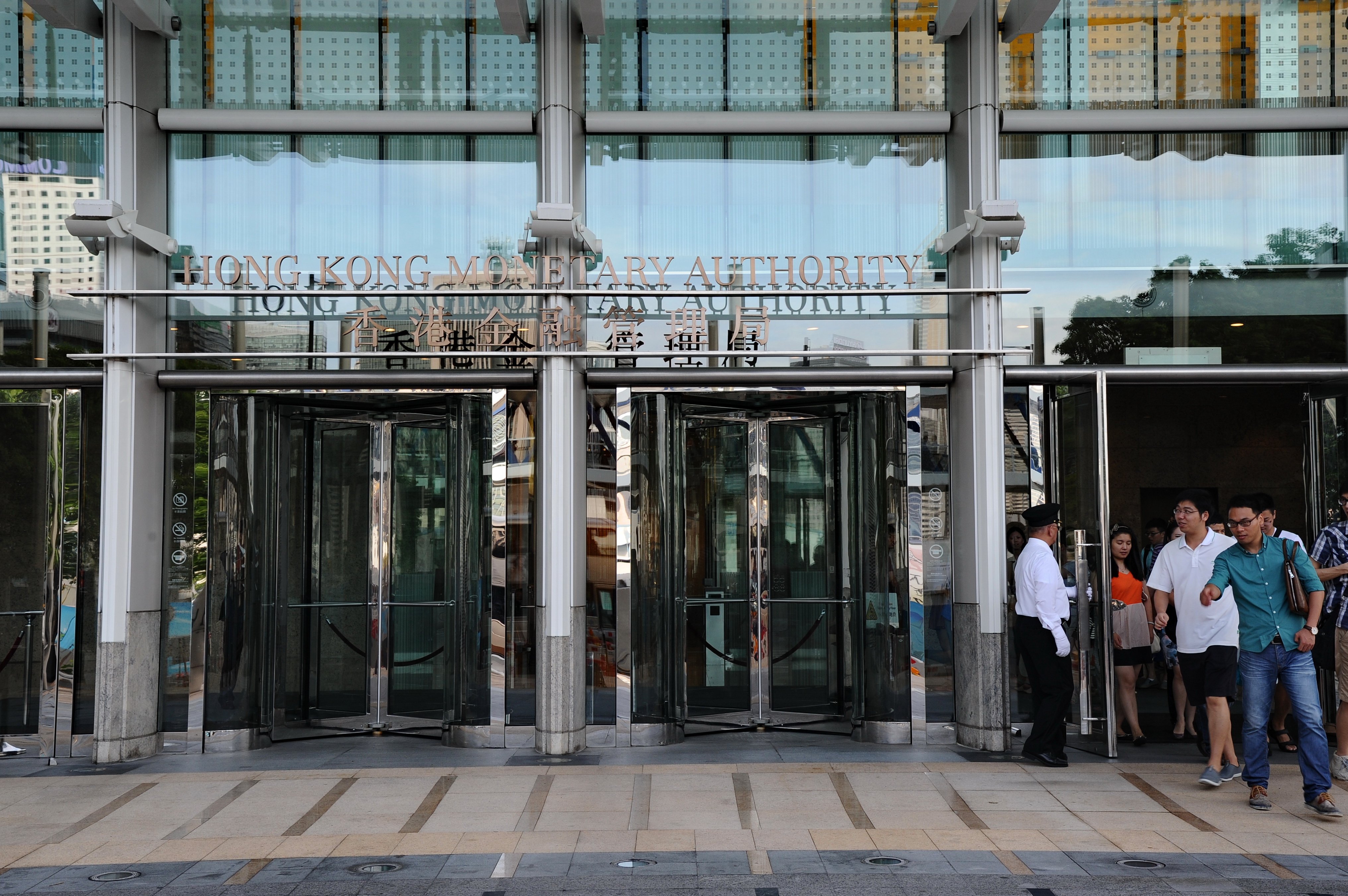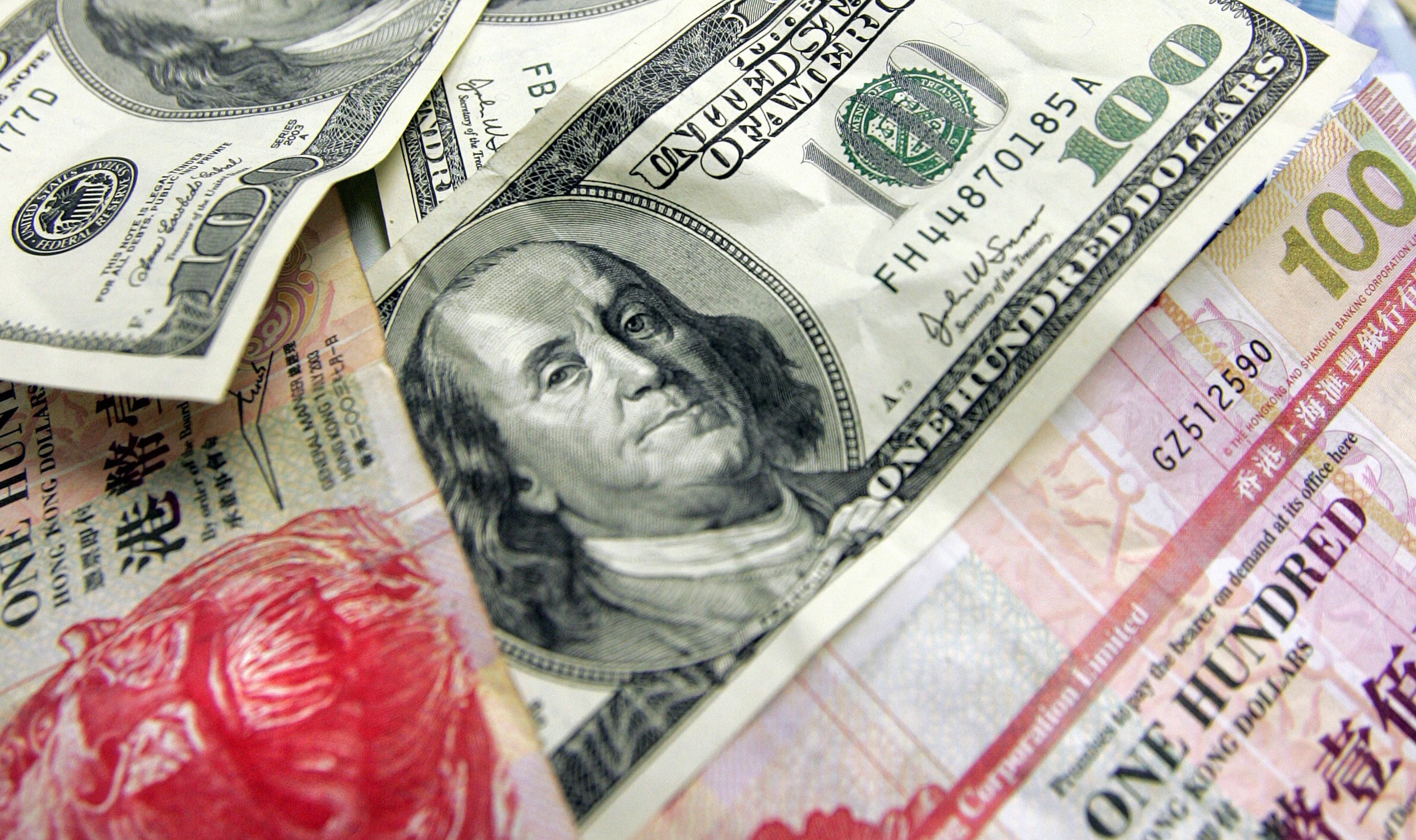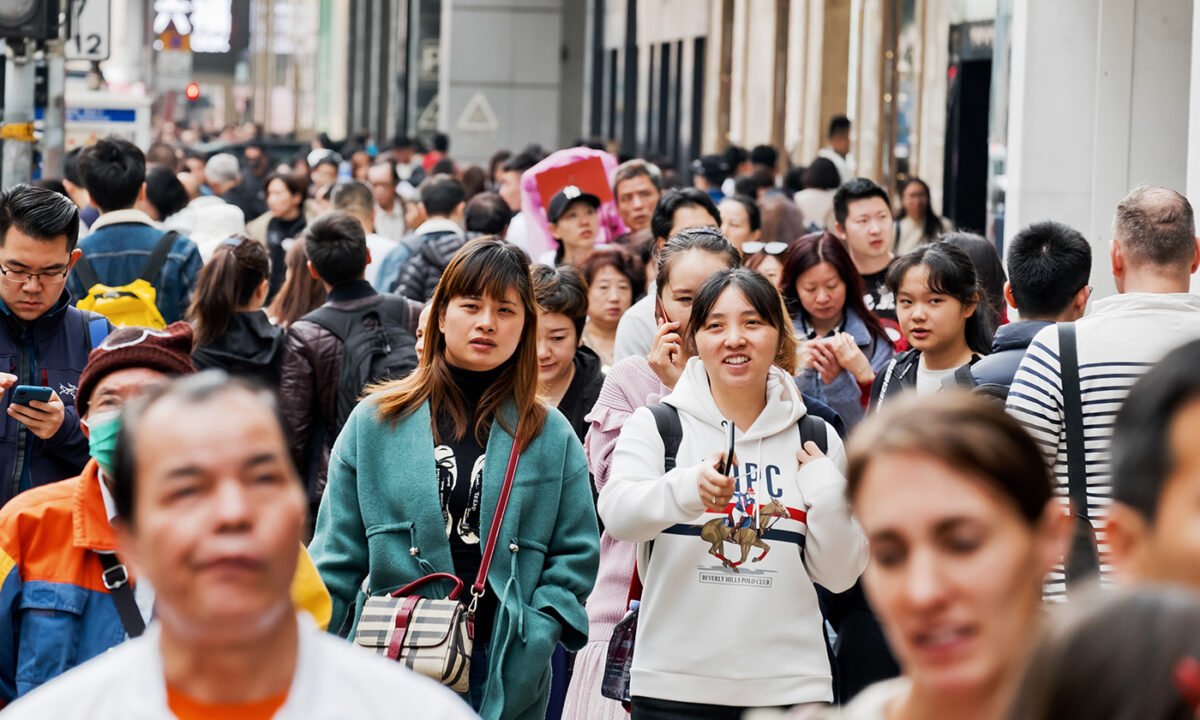Chinese Media Claim Hong Kong is a Safe Place to Invest Amid Global Banking Crisis, Expert Disagrees
Distressed Patriotic Flag Unisex T-Shirt - Celebrate Comfort and Country $11.29 USD Get it here>>

The Credit Suisse acquisition deal damages banking industry credibility, lowers investor confidence
News Analysis
Amid low investor confidence due to recent bank failures in the United States and Switzerland, Chinese state-owned media reported that many wealthy American and Swiss investors closed their onshore accounts and rushed to move their funds to Hong Kong. Financial analysts suggest that Hong Kong remains “an unsafe place” for asset holding and investments.
After the collapse of Silicon Valley Bank (SVB) and Signature Bank in early March, banks worldwide fell into distress one after another; the largest was Credit Suisse, the second-largest bank in Switzerland.
Founded in 1856, Credit Suisse is a “systemically important bank (SIB)” in the country as designated by the Swiss National Bank. It is also one of the “Global Systemically Important Banks (G-SIBs)” defined by the Financial Stability Board in 2021.
After a string of scandals in recent years, frequent changes of top executives, and multi-billion dollar losses in investment funds, the bank began seeing withdrawals upwards of $10 billion a day in early March leading to its collapse.
The Swiss Federal Council, the Swiss Financial Market Supervisory Authority (FINMA), and the Swiss National Bank promptly intervened to remedy the situation.
In a state-sponsored takeover, Switzerland’s largest bank, UBS, announced it would buy Credit Suisse for around $3.23 billion. Under the deal, Credit Suisse shareholders will receive 1 UBS share for every 22.48 Credit Suisse shares held, equivalent to CHF (Swiss franc) 0.76 per share, substantially less than Credit Suisse’s closing price of CHF 1.86 on March 17.
However, Credit Suisse’s additional tier-one (AT1) bonds with a face value of CHF 16 billion (about $17.2 billion) would be written down to zero, leaving bond investors with their investment entirely wiped out.
Although the zeroing of the AT1 bond followed the merger agreement, it deviated from the default rules of the financial market. According to Basel III, the most influential regulatory standard in the global banking industry, bonds have a higher repayment priority than stocks. Usually, when a bank goes bankrupt, shareholders bear the loss before the bondholders.
False Claims by Chinese State Media
After UBS announced its acquisition of Credit Suisse, the Chinese state-owned financial newspaper Securities Times on March 23 released a so-called exclusive report claiming that “a large number of wealthy Americans and Swiss closed their onshore accounts and are rushing to move their funds to Hong Kong.”
The newspaper reportedly asked the Hong Kong Monetary Authority (HKMA), the city’s central bank, to confirm the claim, but the HKMA did not respond directly.

In an interview with The Epoch Times on March 25, Albert Song, a senior financial analyst and expert on the Chinese financial system, analyzed the current banking crisis and explained that the claim of funds moving into Hong Kong is likely false.
“UBS acquired Credit Suisse, and the Swiss government provided a bailout equivalent to one-third of [the] GDP, but the bondholders’ investments were wiped, severely damaging the reputation of the Swiss financial industry because bonds should always have a higher repayment priority than stocks. It seems that the investors were badly hurt, so from now on, investors worldwide will be very cautious about Swiss-related investments,” Song said.
“Due to the tradition of Swiss banking secrecy, the country has become the top place for the world’s rich and powerful to store their cash. However, due to the recent bank failure, many who bank there are now having trouble sleeping at night and worrying about the safety of their money, especially the corrupt Chinese officials who used Swiss banks as a hiding place for their money.
“The Chinese claim that a large number of wealthy people in the United States and Switzerland are closing their onshore accounts and moving their funds to Hong Kong is fake news. There are likely political motives behind this.”
Song has worked in the Chinese financial sector for 27 years. He is also an expert in Chinese politics and economy.
“If the funds in Switzerland are not safe, they can be transferred to other countries. If small and medium-sized banks in the United States have problems, they can be transferred to JPMorgan Chase and other large banks. Why should they be transferred to Hong Kong? Hong Kong is an unsafe place. Hong Kong’s linked exchange rate system (LERS) has accumulated risks in the city’s financial system over the past year. It is now desperate for an inflow of capital into the city,” Song said.
The recent U.S. interest rate hikes have put tremendous stress on the Hong Kong dollar (HKD), as it is a currency pegged to the U.S. dollar. The HKMA had to sell large quantities of its foreign currency reserves to keep the HKD from depreciating against the dollar, thus creating significant risks in the city’s financial system.
“In an attempt to increase the inflow of capital to the city, the Hong Kong government recently introduced new measures aimed at attracting wealthy families to set up in the city, hoping they’d bank and do business there,” Song added.

Hong Kong Desperately Needs Capital Inflow
The Hong Kong government on March 24 announced a new scheme to attract high-net-worth families to set up in the city, including an easier path to residency via investments, calling it the “Policy Statement on Developing Family Office Businesses in Hong Kong.”
The first incentive, the “new Captial Investment Entrant Scheme (CIES),” would allow wealthy individuals and their family members to get residency in Hong Kong if they invested a certain amount of money in stocks, bonds, investment-linked insurance policies, or other assets.
The scheme includes tax exemptions and other incentives for global family offices and asset owners.
Behind Hong Kong’s eagerness to attract capital into the city is its linked exchange rate system (LERS), which is under pressure from the Fed’s continuous interest rate hikes. On March 23, after the Federal Reserve announced another 25 basis point hike, the HKMA immediately raised its interest rates by 25 basis points.
Since Oct. 17, 1983, Hong Kong has adopted the Linked Exchange Rate System (LERS), allowing the HKMA to stabilize exchange rates from the U.S. dollar to the HKD between 7.75 and 7.85, also known as the Convertibility Undertaking (CU). As a currency pegged to the USD, the HKD’s strong-side CU is 7.75 to one USD, and the weak-side CU is 7.85. The HKMA once called the LERS “the pillar of Hong Kong’s monetary and financial stability.”

However, the Fed’s aggressive interest rate hikes continuously triggered the weak-side CU of the HKD. To maintain the exchange rate within the range, the HKMA had to repeatedly sell its USD reserves to buy HKD, causing a significant reduction in the city’s foreign exchange reserves.
The currency’s weak-side CU was triggered again on Feb. 14, causing the HKMA to buy another 14.868 billion HKD (about $1.93 billion) to guarantee the currency’s value. It was the central bank’s 43rd purchase of HKD since May 2022 and its largest purchase to date.
Data released on March 7 showed that the HKMA’s foreign currency reserves stood at $428.9 billion at the end of February, a decrease of $36.1 billion from $465 billion in May 2022.
Views expressed in this article are the opinions of the author and do not necessarily reflect the views of The Epoch Times.




